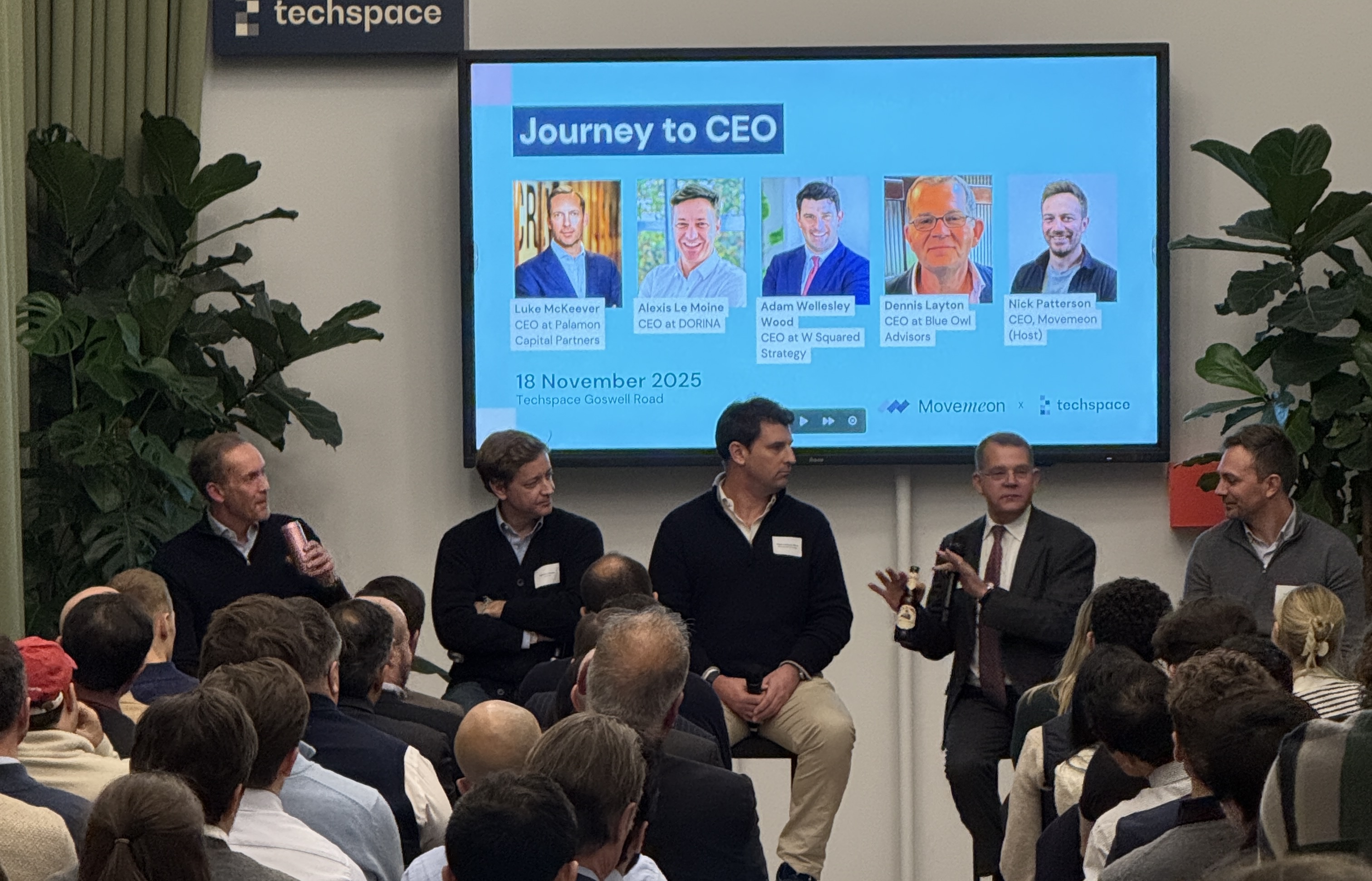How many CEOs have a consulting background?

Table des matières
Balises
Abonnez-vous à notre newsletter
One of the many reasons that people start their careers in consulting is that it’s seen as a training ground for the business leaders of the future. McKinsey in particular leans into this typecasting, describing itself as “one of the world’s largest leadership factories”.
Do the claims stack up? What research has been conducted into the claim took place in the early part of the last decade, but the short answer is: yes, it does. Movemeon has complemented this research with a more up-to-date look at leadership within the FTSE 100 and the UK’s start-up unicorn scene, and the evidence suggests that former management consultants are still disproportionately likely to lead successful businesses.
Find your next job through Movemeon. View all jobs here!
We took a look at the data in more detail, and heard from one former McKinsey consultant who has gone on to found his own business, and invest in others.
CEOs
Movemeon research reveals that 9% of current FTSE 100 CEOs have a background in consulting. This means they outnumber those who are Oxbridge educated (5%), or who have worked in a large accounting firm (8%). USA Today previously found that McKinsey alumni were more likely than those of any other company to lead a $2bn+ business, Deloitte coming second on this list.
Having employed 3% of FTSE 100 CEOs, McKinsey is the single firm with the largest leadership footprint. The firm previously reported (in 2015) that 450 of its global alumni were running companies valued at $1bn or more. These included Oliver Bäte, CEO of Allianz, and Jørgen Vig Knudstorp, CEO of Lego.
McKinsey alumni also prevail in public and non-profit organisations. Isobel Coleman, Deputy Administrator for Policy and Programming at the United States Agency for International Development and former ambassador to the UN, started her career at McKinsey, as did 2014’s World Mayor Prize winner Naheed Nenshi.
Not all of McKinsey’s “successes” are praiseworthy. Jeff Skilling, the CEO in charge of Enron during its accounting scandal, for which he served 12 years in prison, started out at McKinsey.
On the whole, however, consultants tend to have a beneficial impact on the organisations they lead. HBR showed, in 2013, that former management consultants that became CEOs improved company performance during their tenure in 71% of cases, verses 42% for CEOs without a consulting background.
Company founders
Consultants are also disproportionately likely to run their own businesses, exhibiting an entrepreneurial streak as well as the business fundamentals to succeed in the perilous world of start-up survival.
Movemeon’s research found that, of the 63 British-founded businesses to have achieved unicorn status, 16% were started by founders with a background in consulting. With 1.6% of unicorn founders as alumni, McKinsey at first looks over-represented again – however, due to the sample size, this represents just a single founder (Matt Robinson, founder & CEO of GoCardless).
However, McKinsey believes its consultants do have a tendency to start their own businesses. One in four go down this route according to its Thirty Thousand Leaders blog, which lists Innocent Drinks and MetaPack among the businesses to have been founded by McKinsey alumni.
Movemeon previously spoke to one such consultant: Srećko Džeko. Džeko left McKinsey in 2019 to co-found construction material marketplace Simplo before moving into venture capital where, he says, many of the most successful founders he encounters also have consulting backgrounds.
He makes a link between the kind of people that are attracted to a career in consulting and those cut out to succeed as founders: “People who go into consulting in the first place are often overachievers and strive for change. They then get into this big machine that teaches them many things, like problem solving, top-down communication, execution, and project management.”
The end result? “A commercial allrounder with the right mindset and work ethic, something that is much needed in founding teams.”
On Movemeon, you'll find loads of senior roles incl. CEO opportunities. Register today and view all exclusive jobs.
McKinsey is not alone in producing business leaders. Crunchbase counts 556 startups founded by BCG alumni, and 505 by those of Bain.
McKinsey, however, stands out as having successfully established its brand as “the CEO launch pad”, celebrating its role as the training ground of the business leaders of the future. As its former global managing director Dominic Barton put it, the organisation cares about the success of its alumni because “it is a measure of how we develop leaders.” In other words, McKinsey more than any other consultancy, or company, sets out to produce tomorrow’s leaders, and brands itself accordingly.
All former consultants will share the skills that make McKinsey alumni effective leaders for organisations. Their ability to think strategically and execute under pressure can help any organisation, from start-up to large corporate, which is why they so frequently soar through the ranks into leadership positions. To discuss hiring a strategy expert for your business, through a company founded by McKinsey alumni, speak to Movemeon today.
[hubspot portal="25392842" id="24161966-77f0-499d-9230-0f71cee62bf7" type="form"]
About the author: Dan McEvoy is a freelance writer and editor, with extensive experience in finance, technology, HR, recruitment, and marketing content.
Where Talent Meets Opportunity
Our exclusive network use us to find job that fit their skills, and thousands of Employers trust us to hire exceptional talent. Choose the path that matches your goals - start exploring or start hiring.
Nos derniers articles
Nous publions régulièrement des articles actualisés pour vous tenir au courant de l'actualité du marché et de notre travail.
.png)
A record quarter for Private Equity deals sees a sharp hardening in the hiring market
Talent supply tightens as PE demand surges: Inside Q4’s hardest hiring market in two years, where Private Equity accelerates, scale-ups hold steady, and Large Enterprises struggle to attract strategy and transformation talent.

What we can all learn from Private Equity about talent - McKinsey, HBR and our analysis
Private Equity has become one of the most influential forces in business, outperforming public companies through disciplined value creation and exceptional talent strategy. This article explains how PE achieves its results and why demand for ex-consulting talent is rising across the industry.
Joignez-vous à notre offre exclusive communauté mondiale
Recevez des données et des informations exclusives sur les salaires, l'analyse comparative, et des entretiens avec l'industrie pour bâtir une carrière qui vous convient.
Créez un compte dès aujourd'hui et commencez à rechercher des rôles dans moins de cinq minutes.





